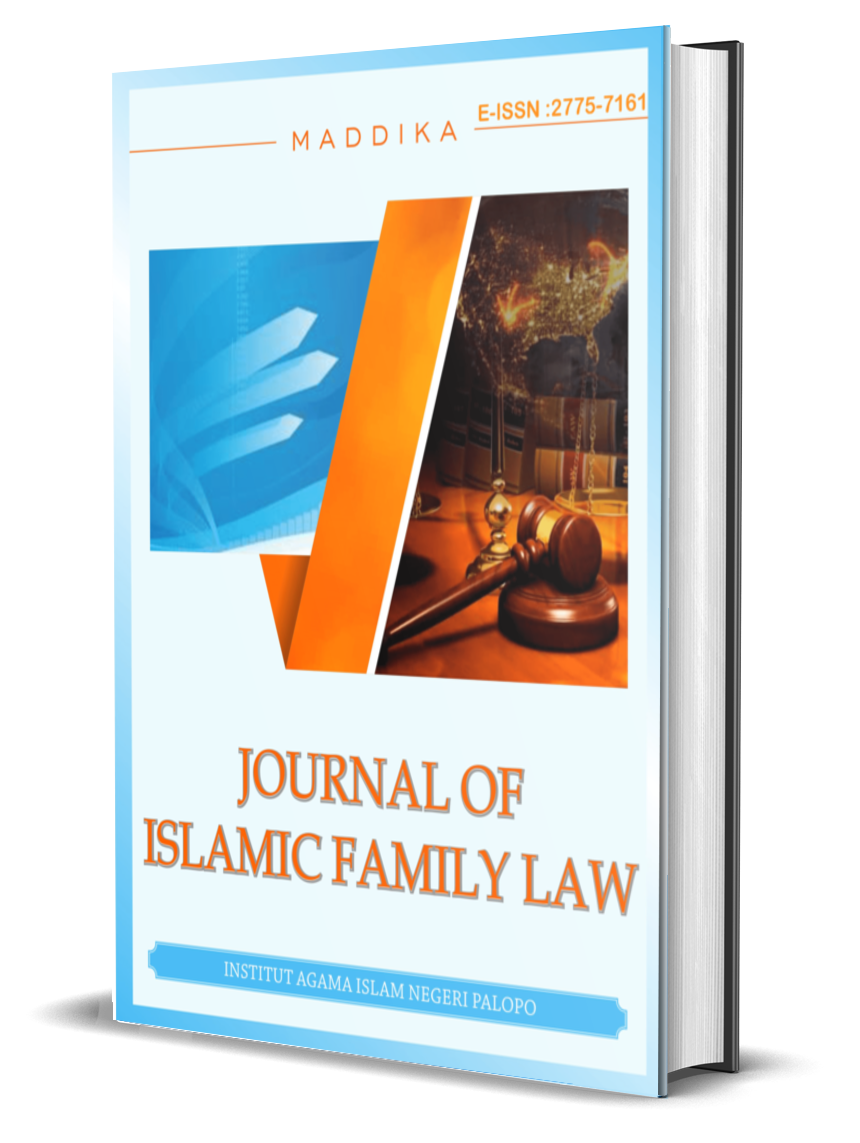ADDRESSING POST-TRAUMATIC STRESS DISORDER (PTSD) IN WIVES AS VICTIMS OF DOMESTIC VIOLENCE: AN ISLAMIC LEGAL PERSPECTIVE
DOI:
https://doi.org/10.24256/maddika.v6i1.6610Abstract
Domestic violence against wives is a serious problem that has a widespread impact, not only physically but also psychologically, one of which is the emergence of Post-Traumatic Stress Disorder (PTSD). The method used is a normative legal research method with a juridical and conceptual approach. The juridical approach refers to Law Number 23 of 2004 concerning the Elimination of Domestic Violence, while the conceptual approach examines the principle of maqāṣid al-syarī‘ah. The results of the study show that efforts to treat PTSD can be carried out through three main approaches, namely pharmacotherapy, Cognitive Behavior Therapy (CBT), and self-healing. Pharmacotherapy focuses on the use of antidepressant drugs such as SSRIs to balance the brain's neurochemical conditions; CBT helps victims change negative thought patterns and build self-confidence; while self-healing plays a role in natural self-recovery through positive activities, meditation, and self-reflection. From an Islamic legal perspective, the treatment of PTSD is in line with the principle of maqāṣid al-syarī‘ah, which emphasizes the protection of the soul (ḥifẓ al-nafs) and the mind (ḥifẓ al-‘aql). A spiritual approach through worship such as prayer, zikr, supplication, and reading the Qur'an serves as psychological therapy that calms the soul and strengthens the faith and patience of victims. This research is expected to contribute theoretically to the development of Islamic psychology and provide practical benefits to the community and relevant institutions in helping victims of domestic violence recover comprehensively, both medically and spiritually.
Keywords: Domestic Violence, Post-Traumatic Stress Disorder, and Maqāṣid al-Syarī‘ah.
Downloads
Published
How to Cite
Issue
Section
Citation Check
License
Copyright (c) 2025 Nurul Andini Andini, Hardianto, Syamsuddin, Risman Setiawan, Zahrum N

This work is licensed under a Creative Commons Attribution-ShareAlike 4.0 International License.
Authors who publish in this journal agree to the following terms:
- Authors retain copyright and grant the journal right of first publication with the work simultaneously licensed under a Creative Commons Attribution License that allows others to share the work with an acknowledgment of the work's authorship and initial publication in this journal.
- Authors can enter into separate, additional contractual arrangements for the non-exclusive distribution of the journal's published version of the work (e.g., posting it to an institutional repository or publishing it in a book), with an acknowledgment of its initial publication in this journal.
- Authors are permitted and encouraged to post their work online (e.g., in institutional repositories or on their websites) before and during the submission process, as this can result in productive exchanges and earlier and greater citations of published work.





















